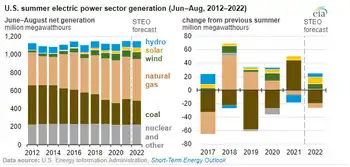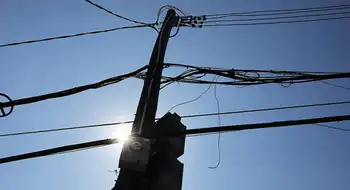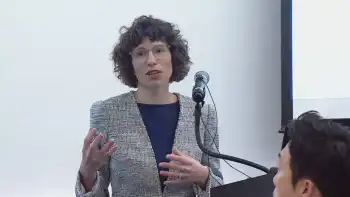Ontario Energy board calls for central agency
By The Toronto Star
NFPA 70e Training
Our customized live online or in‑person group training can be delivered to your staff at your location.

- Live Online
- 6 hours Instructor-led
- Group Training Available
But an environmental group says that approach is doomed to fail because the utilities that are supposed to help deliver conservation programs would be punished for success, as their sales and profits would decline.
The energy board mulled a choice between having a central agency to run conservation programs, or asking local and provincial utilities to design and run their own conservation programs.
Board staff said that going with a central agency has several advantages, among them:
The cost of marketing conservation programs is likely to be lower.
Businesses with many locations around the province would deal with the same programs in all areas.
Measuring results of conservation efforts could be done accurately and consistently across the province.
Allowing each utility to run its own conservation programs would lead to an inconsistent patchwork, the board staff argues.
Under the proposed system, the Ministry of Energy would set broad conservation goals for both electricity and natural gas. The central conservation agency would then devise plans for meeting it. Plans could include paying some consumers a fee for not using energy in periods of high demand; helping to install more sophisticated meters that allow consumers to buy energy at lower prices during periods of low demand; or encouraging the use of more energy-efficient appliances.
The agency would be funded by a fee paid by all consumers through their electricity bill.
The board has asked for comment on the staff report by February.
The Ontario Clean Air Alliance gave the report's proposals a quick thumbs down, because it would eliminate incentive payments to utilities.
Enbridge Gas Distribution Inc. currently receives incentive payments if it exceeds conservation targets, but the report recommends ending that system.
Jack Gibbons of the alliance branded the proposal "totally absurd," saying the Enbridge model has achieved "fantastic" results and should be extended to the electricity industry.
Electric utilities can only be expected to implement conservation programs effectively if they are rewarded, he said.
"Why would the electric utilities want to deliver conservation programs if it's going to reduce their profits?" he asked.
Tom Adams of Energy Probe was skeptical of the report's proposals. He characterized the report as "OEB bureaucrats decide what we need is another bureaucratic agency."
The OEB proposals are in line with several other recent reports advocating more centrally planned energy markets and systems, Adams said. That's a trend toward a return to the old, centralized Ontario Hydro monopoly, he warned.
Adams was less enthusiastic than Gibbons about rewarding utilities for setting conservation targets and beating them.
Much depends on how realistic the targets are in the first place, he said. And it's inherently difficult to prove how much energy would have been used in the absence of conservation targets.











